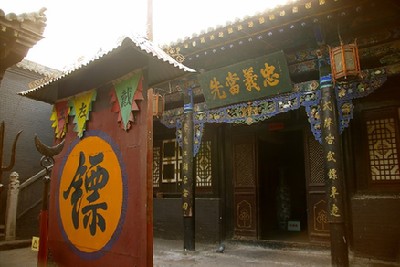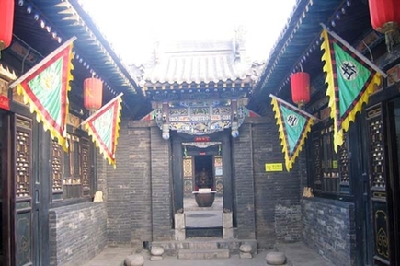The earliest logistics company in the world
In ancient times, because of inconvenient mode of transportations-often by land or water- and an increasing trade between regions, bodyguard agencies were formed in order to ensure the security of travel and also the safe delivery of goods.
Bodyguard agencies in different places connect with each other and some of them even had their own branches in other places which made the service of remittance possible. In the late Ming Dynasty(1368-1644) and early Qing Dynasty(1636-1911), bodyguard agencies were even in charge of shipping a soldier’s pay for the government. Later, they also guarded houses and money transfer firms. It is said that even Li Hongzhang’s house was protected by the most famous bodyguard agency of Beijing, Huiyou Bodyguard Agency. In the mid Qing Dynasty, bodyguard agencies began to escort silver for money transfer firms. In the late Qing Dynasty, as businesses for agencies declined, their main services also changed. They began to escort clothes, goods and precious accessories for rich and powerful people as well as ensuring their personal security. Three other escort sorts of services which took place since then were food, goods and human.
 |
 |
| The remains of ancient bodyguard agencies |
Bodyguard agency is a special industry. In Kungfu novels, they are usually described as people who belong to certain Kungfu groups. Although in actual fact, bodyguard agencies are linked with local heroes who dwell in the jungle and the government agencies. Before starting such an agency, presents have to be given to both government officials and non-government officials alike. These people are then invited to the opening ceremony which was called Liangbiao It is their support given at the opening ceremonies which open the doors for business. The whole setup could be destroyed if any trouble was caused at the ceremony. A good “Liangbiao” ensures the agency a foothold in the business; however, whether the agency can stand above others relies on how it carries out its first job.
A bodyguard agency includes a master, a chief guard, a manager and many guards who engage in protecting and other men carrying out chores. . The master, who is rich and powerful, usually has a wide network connection. Should a problem arise, the master would be able to solve it by counting on his networks by providing a solution. He should also be rich enough to compensate anyone should they have the valuable cargoes be looted. The manager should be keen, observant and careful, with an eye for detail. The chief guard should be well-known for his excellent kungfu skills.
These bodyguard agencies usually have their own words for describing things, which are known as “Chun dian words”. These words, although are not elegant, are very practical. If used in the right manner, would help someone make friends, but if used in a wrong context, it will stir troubles and even battles. The guards are usually called “Chang xi de”( “opera singers”) and the agency’s flag as “Yan”(“eyes”). There are many other “Chun dian words”, for example a person is known as “Liuding”, a half-open door is known as “Ye shan ma san”, temple as “Shen tang”, sunny days as “Tian gao”, nights as “Ming lu”, walking away as “Bu chang”, the top of a wall as “Ma” (it means horse), thief as “Mang gu”, a bold man as “Dian cu”, a coward as “Dian xi” and rich as “Hai la” and so on.
Simply stating, these old bodyguard agencies are quite similar to the present logistics companies. They all transport goods for others. Therefore, the bodyguard agencies which started in the late Ming Dynasty and early Qing Dynasty can be considered as the earliest logistics company in the world.
The cargo transporting function of bodyguard agencies has been developed into modern logistics. But transportations of cargo goods have since changed. In ancient times, they transport only valuable goods. In order to protect those valuable goods, they need people who know are skilled in the art of kungfu.
However, in this modern day, a driver’s license is all that’s needed for people work in the logistics industry.
















